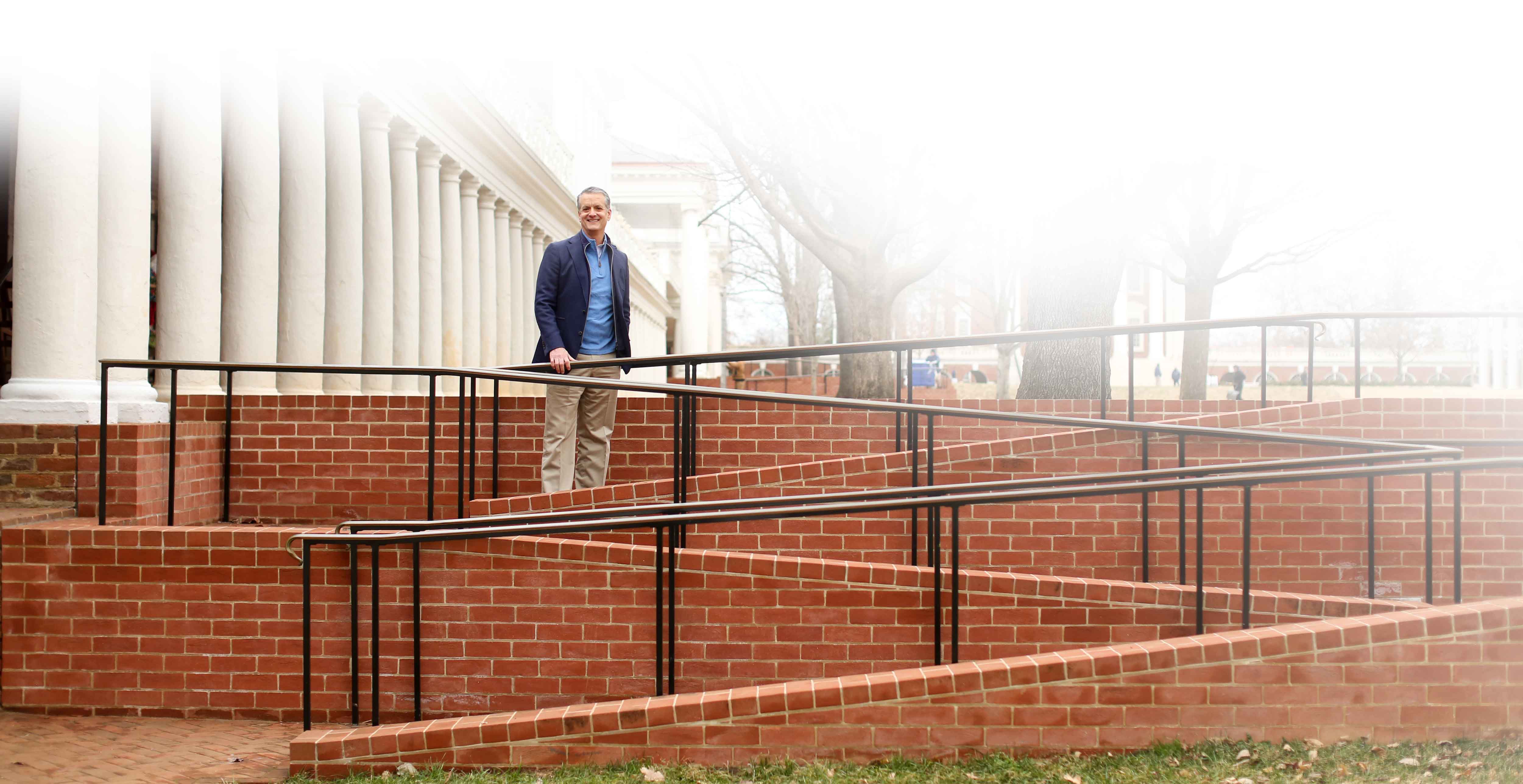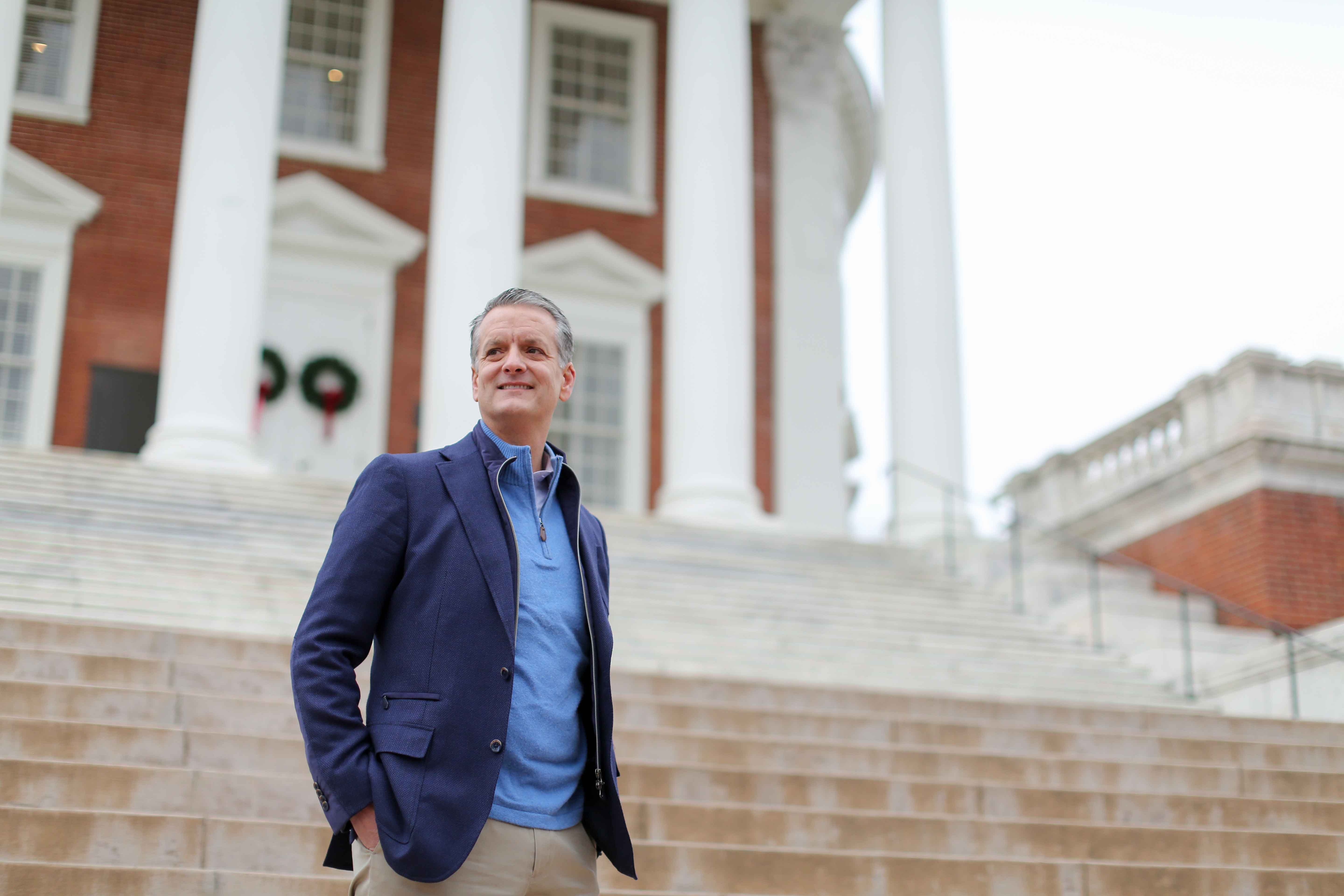

The Gift of Access
Each year around the holidays, Jo Frances Heiden (McIntire ’87) organized a wrapping party in her Arlington, Virginia, apartment. Family and friends, including former UVA classmates, gathered to wrap thousands of presents for disadvantaged children in the Washington, D.C., area.
Jo Frances ran the show. But, due to an accident during her second year at UVA, she did so from a wheelchair, paralyzed from the shoulders down. “She’d be there quarterbacking the whole event and making sure that it happened,” her brother, Clint Heiden, recalled. “That was really neat to watch—she was always looking out for folks.”
Jo Frances passed away in 2002 from complications related to her injury. In her memory, Clint made a gift for a series of modifications that will create the first ADA-compliant Lawn room at UVA. The Office of the Architect for the University has narrowed the choice to two rooms—23 and 25 West Lawn—with work expected to begin in the summer of 2020. Last March, in an indication of strong student support, Olivia Burke (Curry ’21), then a member of the Student Council Building and Grounds Committee, advocated for an ADA-compliant room, penning an editorial in the Cavalier Daily stating the need for “an ADA-accessible Lawn room so that our community can truly be considered an accessible space for all.”
A smaller radiator will make the closet more accessible.
Rooms 23 and 25 West Lawn have lofts, so replacing them with a standard twin bed will help open the route into the room.
Lowering the light and fan controls and closet hanging rods will make each easier to reach.
Installing a lever handle on the door will make it easier to enter and exit the room.
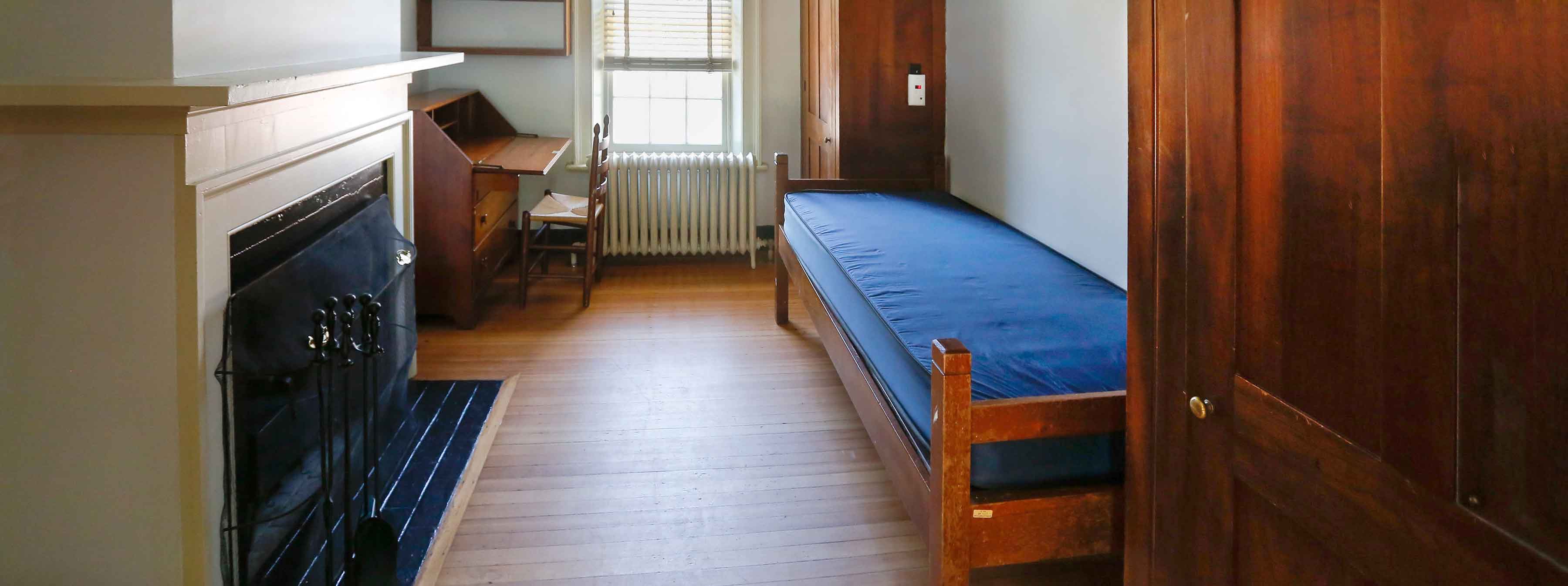
According to Brian Hogg, senior historic preservation planner, drawings for the modifications are underway. A series of relatively small changes to the room’s layout and functionality will improve day-to-day life dramatically for a resident with a disability. “Inside the room, we’ll modify the cupboard that holds the sink to make the sink accessible and place it and the medicine cabinet at the proper heights,” Hogg said. “We’ll also replace the loft with a twin bed to open up the route to that area, and make the hanging rods in the closet easier to reach.”
Other adjustments include installing a smaller radiator, lowering the light and fan controls, and installing a lever handle on the door to make it easier to get in and out. “Outside, we’ll slope the sidewalk in front of five adjacent rooms to eliminate the step at their entrances so that those rooms can be entered easily by a wheelchair,” said Hogg. “This will help foster the kind of moving back and forth between rooms that is characteristic of student life on the Lawn.”
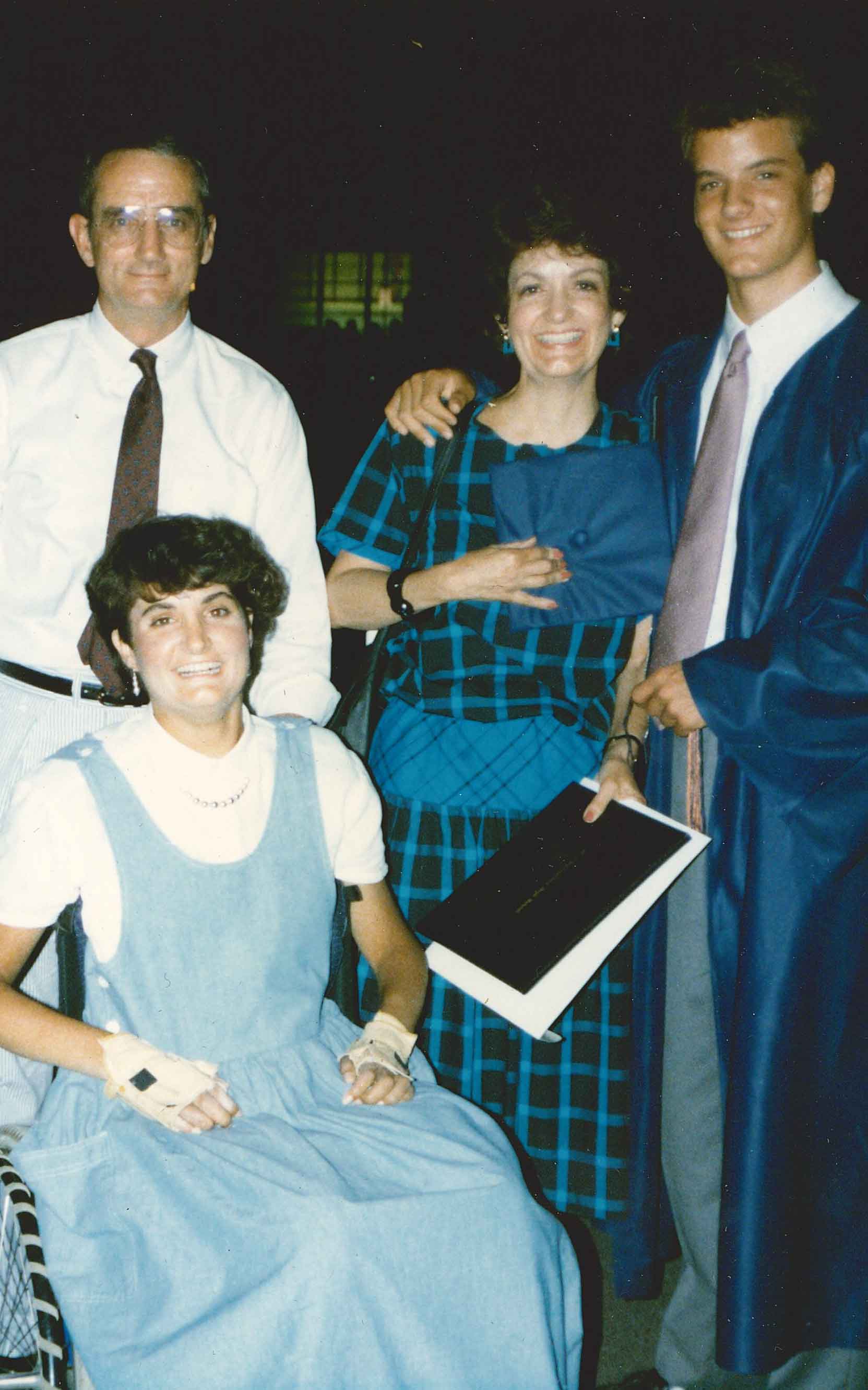
Jo Frances returned to UVA just 18 months after her accident, determined to finish her education. She received a bachelor’s degree from the McIntire School in 1987, and, in the process, became an advocate for improving access for people with disabilities on Grounds. “She found it very difficult to get around, and she really made an effort to work with the school to get simple things such as curb cuts put in,” said Clint.
After she graduated, Jo Frances resolved to live life on her own terms. She got her own place. She took the bus to and from work each day. She worked as a software engineer in McLean and designed a special device to help her type. In the mid-1990s, she reclaimed partial use of her left hand after she had an electrical stimulator implanted in her chest. Interviewed by The Washington Post, she said: “After you break your neck, anything where you don’t have to say, ‘Can you do this for me?’ is just such a major gift. The first time I picked up a hamburger, I was thrilled.”
And she had her art. After the accident, Jo Frances began to paint by holding a brush in her mouth. “I actually think that she was a better painter with her mouth than she was with her hands,” said Clint. “Each human has inherent capabilities that don’t leave us. If you’re an artist, you're an artist.” Eventually, Jo Frances began to sell her artwork in the form of greeting cards and started her own business, J. F. Originals, whose motto was “Art That Rises Above the Challenge.” She used the proceeds from her card sales—as many as 300,000 in some years—to buy and distribute the gifts that were the focus of the annual wrapping parties.
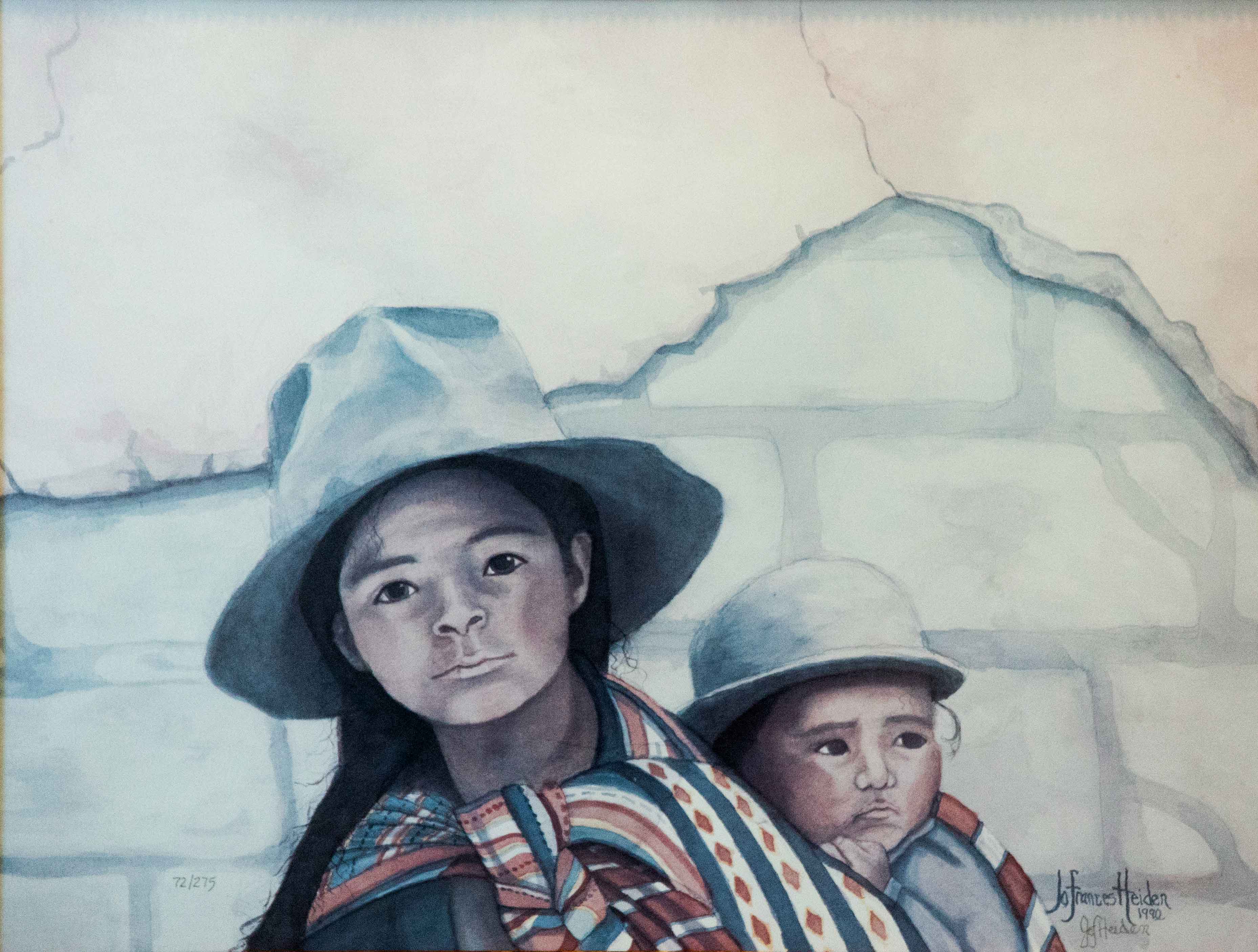
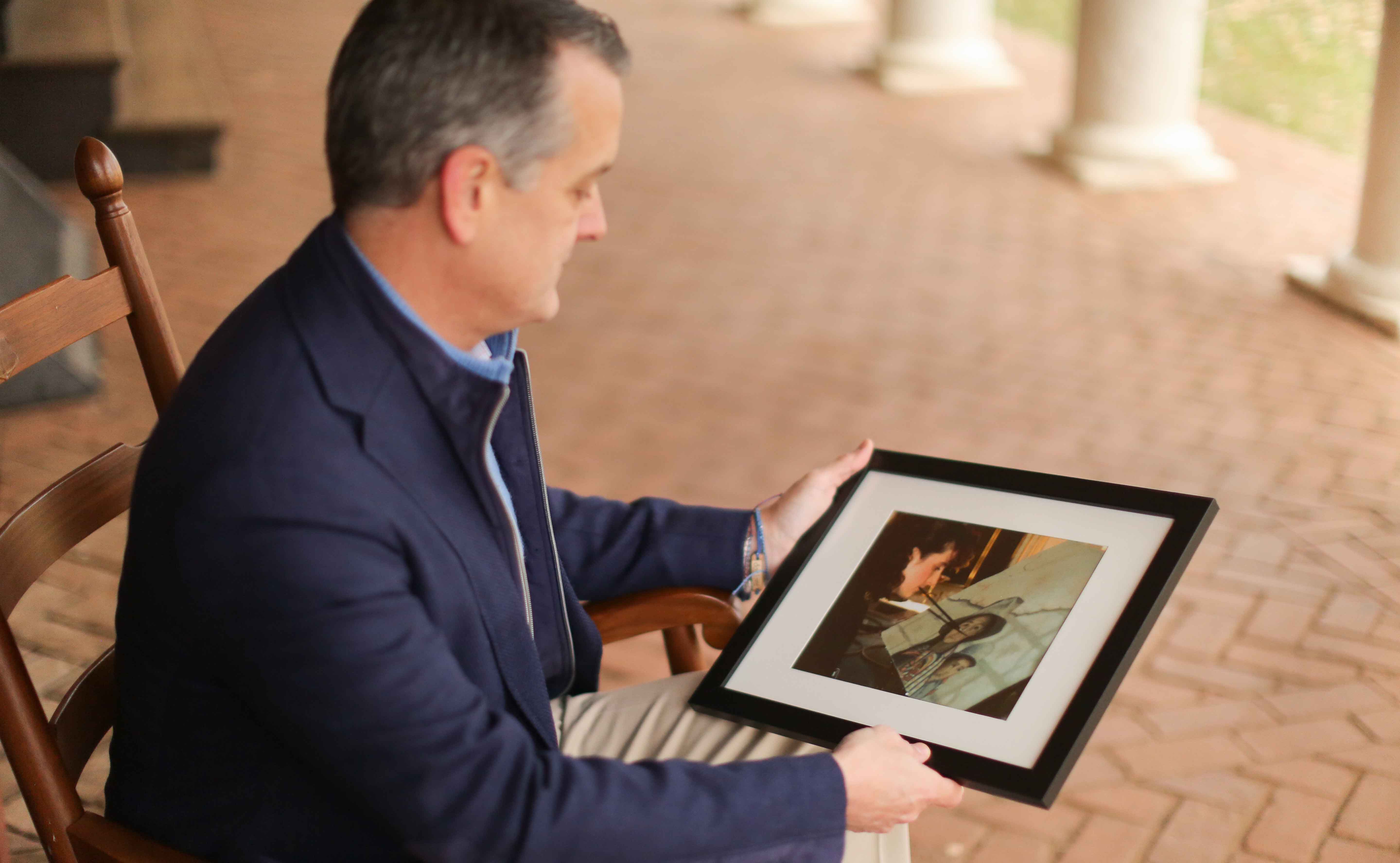
She was a very strong person. I think she's somebody we can all learn from, and I'm very proud of her. I want to keep what she's done alive.
- Clint Heiden
“This was an overwhelmingly generous gesture on her part and an amazing example of her selflessness,” recalled Janet McCarthy Puller (Col ’86), a friend from high school and UVA, of the annual event. “With all of the work involved, you couldn’t help but be moved by her efforts and her determination to see it through, year after year. It’s inspiring that she continues to touch, and help, other people. This room will be a true testament to her legacy.”
Clint’s gift toward the Lawn room modifications is in keeping with his sister’s desire to be fully in charge of her own destiny, while also thinking of those less fortunate than she was. “My sister had a very good and long life after the type of accident she had,” he said. “It’s remarkable that we had 18 years together. Part of the reason for this gift is that I wanted to create a legacy. I was just blown away that this idea could help a student right now and that there might be a need for it for the next 50 years. The whole point is that if there is a need, the room will be available.”
Clint feels that his older sister still is very much with him. He keeps her artwork tucked into nooks around the house. He named his oldest daughter, Hope Jo Frances, in his sister’s honor. When he has a bad day, he tries to think about how she went through life without complaint and how, even after her accident, she was always there for her younger brother. “She was a very strong person,” he said. “I think she's somebody we can all learn from and I'm very proud of her. I want to keep what she's done alive.”
The Heiden family will place a small plaque dedicated to Jo Frances in the room once it becomes fully ADA compliant. “My sister would be so proud of this room,” Clint said. “She would say that this fits with what she would want for others. She’d say, ‘You’re doing right by me and by what I would want. You’ve made the right choice.’”
